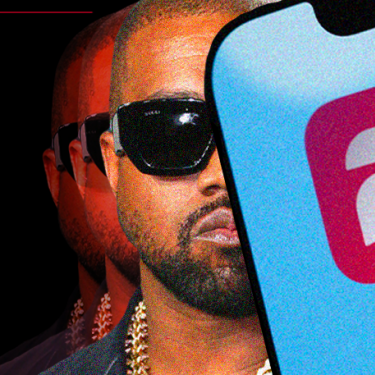Social media platforms should not become great fortunes’ playthings

After seeing some of his comments removed from Instagram and Twitter, businessman rapper Kanye West, who now calls himself Ye, announced that he plans to have his own social media platform like Elon Musk and Donald Trump. Reporters Without Borders (RSF) is concerned about the emergence of these new social media tycoons and says platforms should never be subjected to the whims of web divas.
“The world’s biggest fortunes used to buy media outlets, but they now want to take over social media,” said Vincent Berthier, the head of RSF’s Tech Desk. “Why do they want to own these platforms? It’s probably not out of a concern for the general interest, out of a desire to promote access to freely reported, reliable and pluralistic information. Their takeover plans raise many questions. Having a fortune should not allow you to influence how content is distributed online. Are we going to let a new generation of wealthy businessmen plant their flag on the Internet without reacting?”
The social media platform that Ye, the former Kanye West, has his eye on is Parler, a small platform beloved of conservatives that claims to have 20 million users. An independent candidate in the 2020 US presidential election, in which he garnered a barely visible number of votes, Ye now wants to defend the freedom to express “conservative opinions” on social media, the contrary, he says, of Mark Zuckerberg and his “left agenda.”
Ye’s statements recall some of the views expressed by two other wealthy businessmen. Former US President Donald Trump and the world’s richest man, Elon Musk, have both launched assaults on the online social media world in which their thirst for conquest has been motivated, at least in part, by politics.
The statements that accompanied the launch of Trump’s own platform, Truth Social, in February 2022, dangerously suggested that it was to serve as a sounding board for the former president’s own ideology. Musk, who is more subtle than Ye and Trump, has said that he thinks Twitter, over which he could soon acquire total control, has a “left-wing bias” problem.
This trend could clearly post a threat to democracies and to the circulation of pluralistic news and information online.
There is currently no way to ensure that these new tycoons do not use their acquisitions to shape the opinions of the millions of citizens who use their social media. But it’s the interests of these citizens that should come first, rather than the business interests or political goals of those who run the companies.
Communication platforms, and especially social media, shape the public debate. This is why they should be required to observe political, ideological and religious neutrality, even if they are privately-owned. Arbitrary decision-making and political opportunism by those running social media must not tolerated because it’s not hard to imagine their users – a term too often used to designate those who are in reality citizens – being subjected to vast amounts of content with a strong political bias.
If Ye is interested in social media account moderation and its impact on the pluralism of the views being expressed, RSF recommends that he reads the Forum on Information and Democracy’s latest report on Accountability regimes for social network accounts and their users. It recommends ways to harmonise moderation policies on platforms, regardless of their size, enabling them to protect both freedom of expression and access to information.
RSF contacted both Parler and Ye, but neither has so far responded to our questions.
